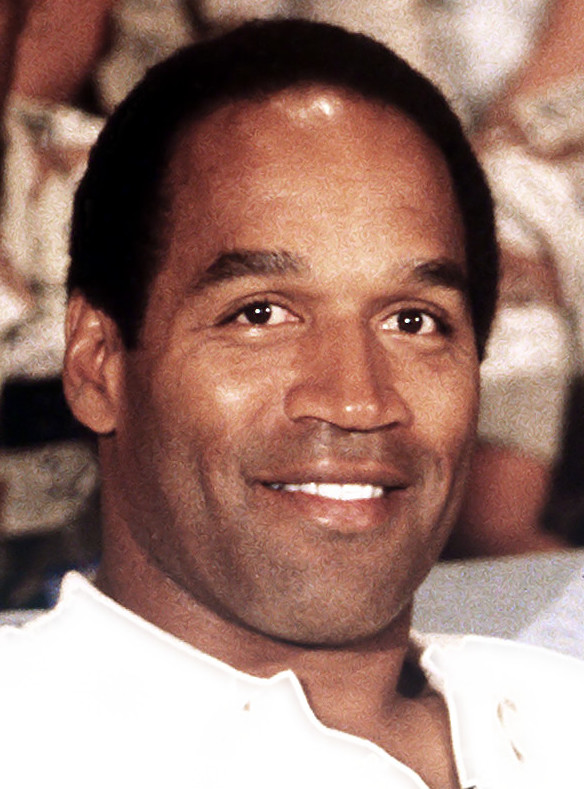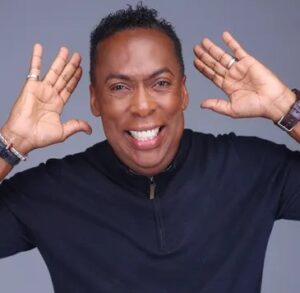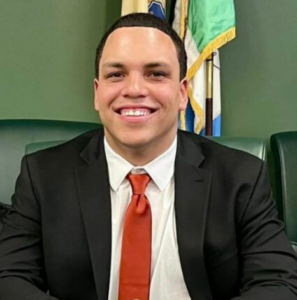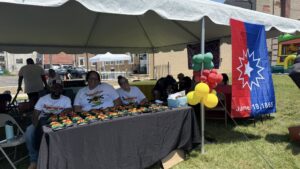Column: O.J. Simpson’s Life After Football Merely a ‘Symbol’

O.J. Simpson sits with a group of servicemen to watch a Thanksgiving Day football game while visiting U.S. troops who are in the region for Operation Desert Shield in 1990. Photo courtesy U.S. Department of Defense.
OPINION
BY CLYDE HUGHES | AC JosepH Media
Let’s get one thing clear: Did O.J. do it?
Of course he did it. I don’t think any objective person looking at the facts can conclude otherwise. But the “Trial of the Century” was made for Hollywood and exposed the racial dynamics of America’s criminal justice that late attorney Johnnie Cochran was able to turn on its head.
O.J. Simpson died of cancer on Tuesday (April 9), leaving behind a brilliant football career, and a solid second life as a broadcaster and pitchman, only to be remembered by the double murder of his ex-wife and her friend.
While it was his 2008 armed robbery and kidnapping conviction in Las Vegas that actually landed him behind bars for nine years, many felt it was Simpson’s comeuppance for the deaths of Nicole Brown Simpson and Ron Goldman.
“I don’t think most of America believe I did it,” Simpson said to The New York Times after the verdict in 1995. “I’ve gotten thousands of letters and telegrams from people supporting me.”
I have no desire to rehash the details of Simpson’s sorted final years. There are plenty of publications and opponents who will gladly do that. What I want to do is try to explain Simpson’s complicated relationship with the Black community and its reaction to Simpson’s criminal verdict. It actually doesn’t need explaining but there is a need to set the record straight.
The so-called “Trial of the Century” happened on the heels of the Rodney King beating and verdict in Los Angeles. You simply cannot separate the King verdict and explain the reaction to the Simpson verdict fully.
For a quick refresher, King was brutally beaten by four Los Angeles police officers in 1991. Unbeknownst to them, someone videotaped most of the incident from their apartment (Sounds a little like 2020). Despite the video evidence and much of the police brass who tried the distance themselves away from the officers, they were found not guilty by a suburban Los Angeles area jury.
That led to days of riots in the poor section of Los Angeles. Few understood how anyone could look at the video (King was stopped for speeding and ended up with broken bones and an ugly beating that left him in a wheelchair while offering little resistance) and clear the officers.
In that context, you have the Simpson trial — a famous, wealthy former NFL star who happened to be Black, charged with the murder of his wife and friend — both White. It didn’t take a rocket scientist to figure out the case would fall along racial lines.
Cochran, a former Los Angeles prosecutor knew it, knew where most of the bodies were buried in the department and believed race would be the key to getting Simpson off.
Outside the courtroom, the once beloved Simpson was made to look like a member of the rap group N.W.A. in the eyes of many Whites. For Blacks, Simpson became a symbol of the justice system attacking another Black man.
That’s what many Whites never understood when Blacks cheered for Simpson’s acquittal. Simpson was a symbol of a racially-broken criminal justice system seeing its chickens come home to roost. Most Blacks could have cared less about Simpson, but they cared very much about how Blacks have been and still are being treated in the criminal justice system.
The late renowned Harvard University Law Professor Charles Ogletree Jr. put it this way on PBS “Frontline” in 2005.
“The African American community has accepted [Simpson] not as an athlete or a hero, but as someone in the criminal justice system who, like them, would have been railroaded, they would say, if he had not had a Johnnie Cochran there to rescue him,” Ogletree said in a quote reproduced after Simpson’s death by NBC News.
“O.J. Simpson was raceless. He was not a person who spent time in African American communities. He was not a person who was deeply committed to African American values.”
Statistics on Blacks being falsely accused of murder and other crimes are real and an unshakable fact in the United States. The numbers, even today, remain stark:
According to a University of Michigan Law School study in 2022, innocent Blacks are 7½ times more likely to be convicted of murder than innocent Whites, Blacks convicted of murder are about 80% more likely to be innocent than other murders and more than a quarter (26%) of those innocent Blacks were convicted of killing Whites.
For Blacks and other people of color, the numbers reveal what we already know for it to be true. When Simpson as a Black man was found not guilty, few Blacks were surprised by the reaction in their community.
When I hear people talk about George Floyd and his 2020 death at the hands of Minneapolis Police, I have similar feelings. Social media is littered with comments from many Whites saying, “He was a drug addict. Why would Black people celebrate him?” As if anyone deserves to be choked to death on a public street, particularly members of law enforcement who are sworn to serve a protect.
Floyd, in some ways like Simpson, became a symbol of the larger criminal system at play, which many see as titled against Blacks. Do you really think there would have been trials against the four Minneapolis police officers if it wasn’t for that cellphone video? Really? But I digress.
O.J. Simpson was a great football player who threw away his luxurious life, regardless if you believe he did it or not.
For most Blacks, though, Simpson was plain and simply a reflection of what we see in the criminal justice system regularly. Nothing more.
Follow Us Today On:
Note from AC JosepH Media: If you like this story and others posted on Front Runner New Jersey.com, lend us a hand so we can keep producing articles like these for New Jersey and the world to see. Click on SUPPORT FRNJ and make a contribution that will go directly in making more stories like this available. Thank you for reading.





